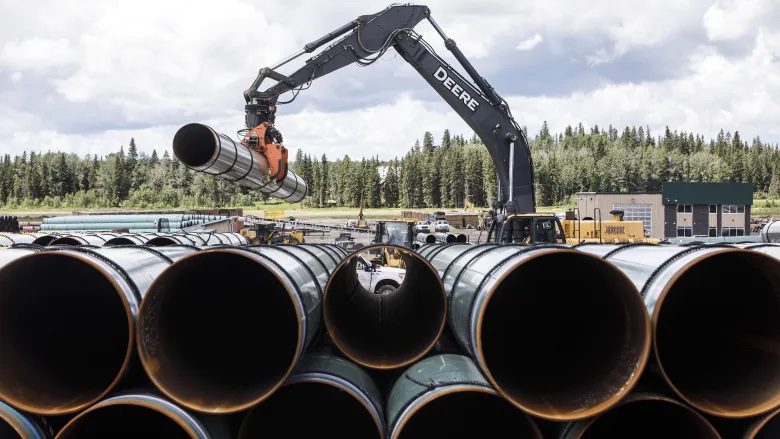Originally published by Tony Seskus for CBC on February 7, 2020
Read the original article
The soaring cost of the Trans Mountain pipeline has not cooled interest in British Columbia from a group of First Nations that want to ultimately own the project.
On Friday, Trans Mountain CEO Ian Anderson announced the cost of building the pipeline expansion had climbed 70 per cent to $12.6 billion, up from an initial estimate of $7.4 billion.
Mike LeBourdais, who represents the Western Indigenous Pipeline Group, said its chief financial officer, economists and partners are evaluating the implications of the cost increase.
But he said the goal remains the same: ownership of the pipeline.
“It doesn’t change the fact that our group, the Western Indigenous Pipeline Group, believes that this pipeline should be owned by the First Nations that are impacted by it,” LeBourdais said.

“My team … and my partners are looking at it and making sure that the impacts aren’t too severe, or how do we mitigate those impacts,” he said.
The Western Indigenous Pipeline Group is a coalition of First Nations located along the Trans Mountain route in B.C.
“We still want to buy it … because we’re the most impacted people,” LeBourdais said.
“We’ve been living with this pipeline since 1953. And so we’ve been living with those risks without the benefit of ownership or that income that comes from the pipeline. And so this is an opportunity for us to enjoy the other side.”
There are two other Indigenous pipeline groups that have expressed interest in owning a stake of the Trans Mountain pipeline: Project Reconciliation, which is based in Calgary, and the Iron Coalition, led by chiefs in the Edmonton area.
The federal government bought the pipeline from Kinder Morgan in 2018 for $4.5 billion.
Speaking with reporters Friday, Anderson said increased material and labour costs are to blame for the cost overruns, along with years-long legal troubles and renewed Indigenous consultation efforts that also added to the final total.
Asked if the increased costs might make the project too expensive for Indigenous groups to purchase, Anderson said he doesn’t think that will be an issue.
“It remains very financially viable and a good return on investment,” he said. “They’ll evaluate it like anybody else will.”

Anderson said the project will be profitable because much of its capacity has already been sold on 20-year contracts to major oil producers such as Suncor and Cenvous.
He said the project will generate $1.5 billion a year in cash when it’s fully operational.
Richard Masson, former head of the Alberta Petroleum Marketing Commission and an executive fellow with the University of Calgary’s School of Public Policy, said he believes buyers will likely only pay a price that allows them to earn a competitive market rate of return regardless of what it costs to build.
“My expectation is nobody actually will want to buy this until it’s up and running and the rest of the uncertainty is gone,” Masson said.
